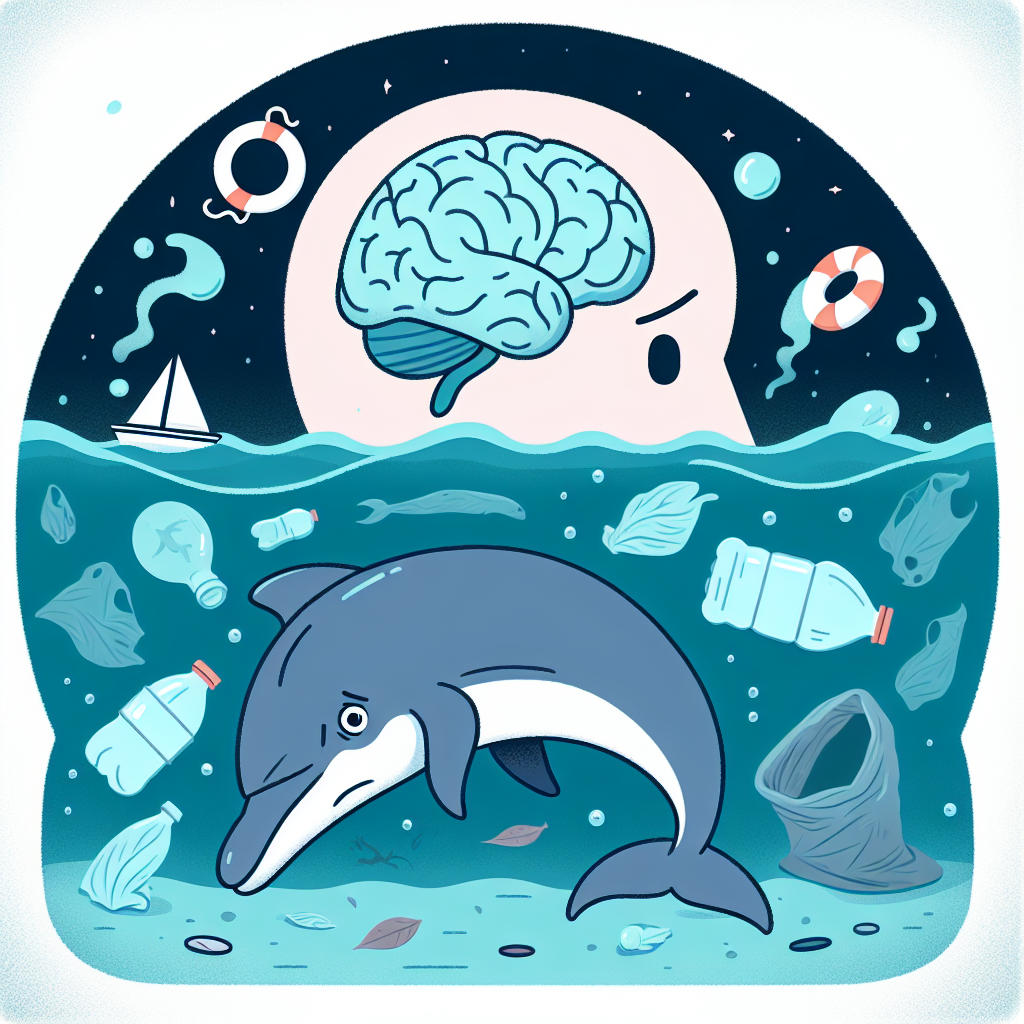
Are Dolphins Facing a New Form of Alzheimer’s Due to Environmental Toxins?
Recently, a study published on Science Daily uncovered troubling findings that dolphins in the waters off Florida may be suffering from Alzheimer’s-like brain degeneration. This condition is potentially linked to cyanobacterial toxins, which are increasingly present due to climate change and nutrient pollution in marine environments.
Understanding the Situation
Dolphins in distress have been found along the coastlines, with their brains showing signs of misfolded proteins, akin to human Alzheimer’s disease markers. Cyanobacteria, commonly known as blue-green algae, are notorious for their toxic blooms in warm, nutrient-rich waters. These toxins can accumulate in marine food chains, posing a threat to top predators like dolphins.
This revelation is crucial as it suggests a broader environmental impact on marine life and highlights the interconnectedness of our ecosystems. The increasing prevalence of these toxins is attributed to warming oceans and agricultural runoff, which is accelerating the nutrient load in these waters.
The Science Behind Cyanobacterial Toxins
Cyanobacterial toxins have long been known to cause respiratory and liver issues in marine organisms. However, their potential to disrupt neurological functions is an emerging area of concern. As these toxins bioaccumulate up the food chain, dolphins, which sit at the top, can receive significant exposure over time.
What This Means for Dolphins and Marine Life
- Environmental Stress: Dolphins are facing increased stress due to habitat changes, pollution, and now, potential brain damage.
- Biodiversity Concern: If dolphins start experiencing widespread neurological issues, it could indicate severe disruptions in marine ecosystems.
- Research Necessity: More research is crucial to understanding the exact pathways through which these toxins affect marine mammals.
These findings underscore a pressing need for enhanced environmental monitoring and stricter regulations on pollutants that contribute to toxic blooms.
A Call to Action
With dolphins potentially serving as a bellwether species for marine health, scientists are advocating for immediate steps to mitigate the factors contributing to harmful algal blooms. Efforts such as reducing agricultural runoff, improving wastewater treatment, and promoting sustainable agricultural practices could be vital in controlling this environmental issue.
BBC News has also highlighted that reducing pollutants in ocean systems is pivotal to restoring marine health and alleviating stress on species at risk.
The Broader Environmental Implications
Our oceans are a reflection of broader environmental challenges. The potential for dolphins to develop neurodegenerative conditions similar to human diseases reflects not only a unique cross-species concern but also our impact on the natural world.
As we continue to explore the impacts of climate change and pollution on marine life, it becomes increasingly clear that preserving biodiversity in our oceans is linked directly to maintaining the health of human environments. Collaborative research and conservation efforts are essential to ensure that oceanic health is preserved for future generations.
Conclusion
The study’s findings are a wake-up call about the real-world implications of environmental neglect. As dolphins in Florida waters potentially confront Alzheimer’s-like conditions, this moment should reinforce demands for environmental policy reforms and proactive conservation strategies in marine settings worldwide. The health of our oceans is a direct indicator of the health of our planet—and, by extension, the future of our own global society.


